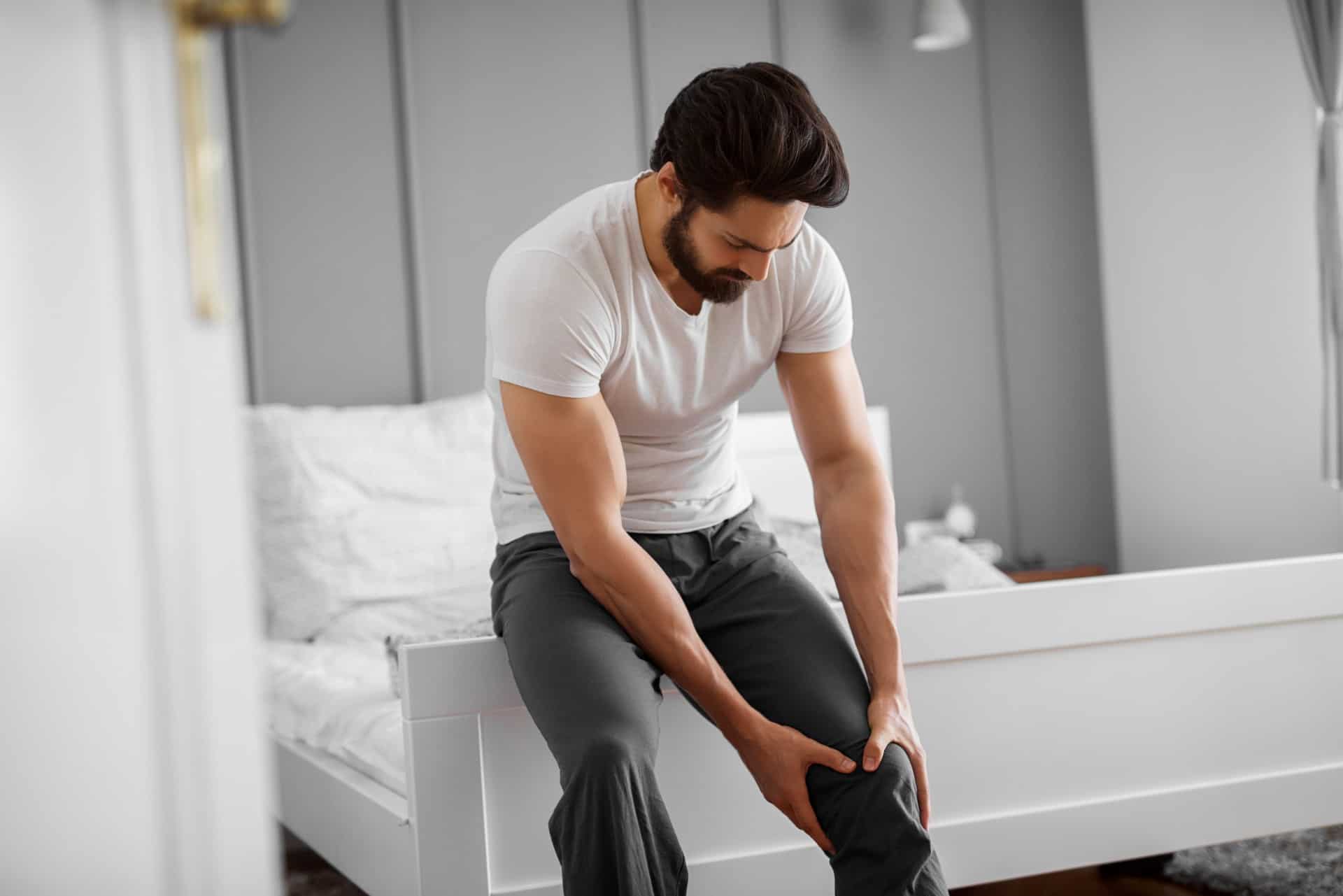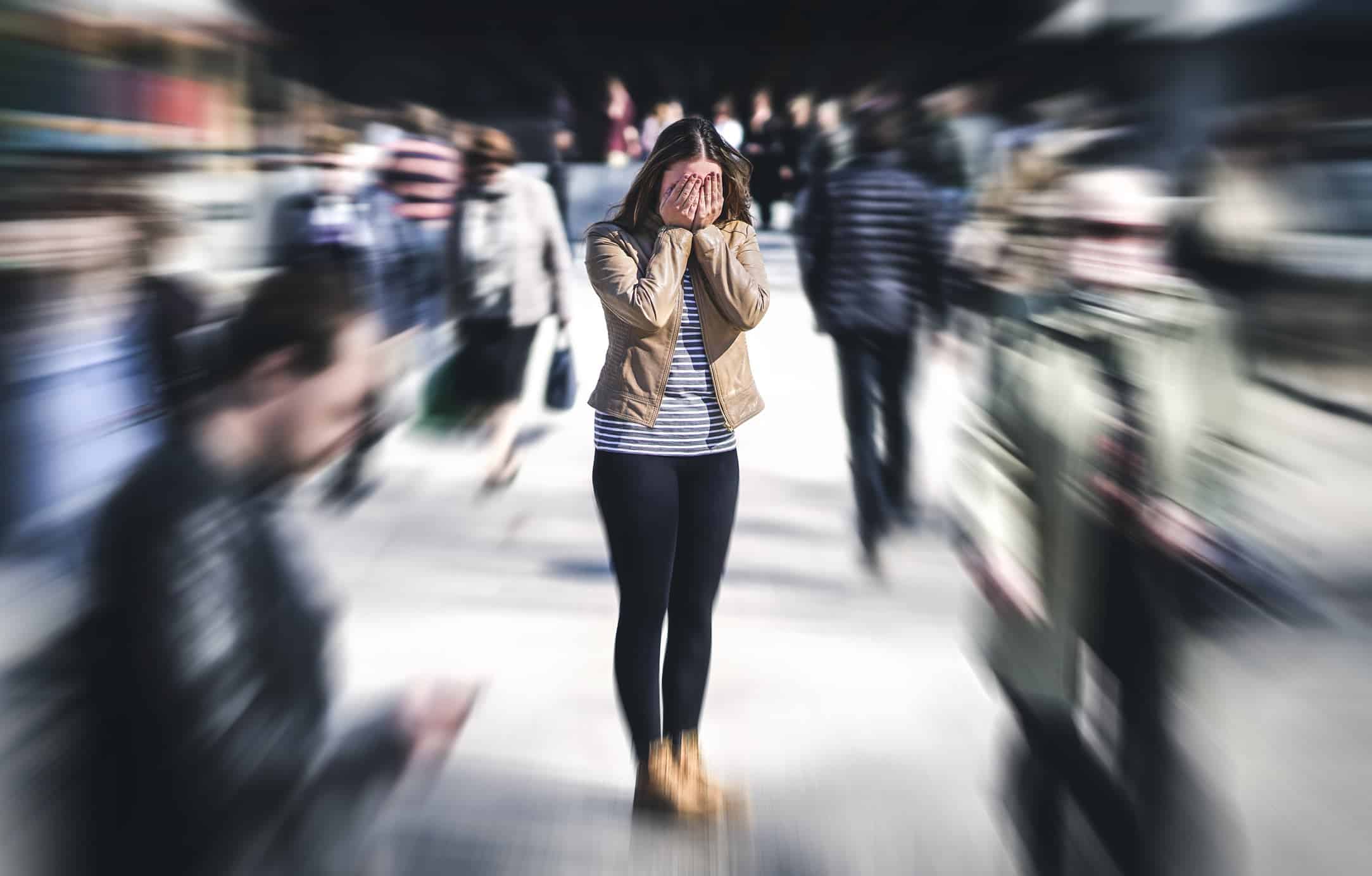Iron deficiency is a common nutritional deficiency and is the number one cause of anemia which we will get to in a minute. Iron is responsible for transporting oxygen to all of the cells in your body (hemoglobin and myoglobin). It also helps aid your immune system. The main factor in the deficiency of iron is blood loss, especially in women. Other causes are bad diet, iron absorption blockers, illness (such as a fever), and parasites (such as hookworm). If you think you may have a deficiency problem, first check if you have any of the following symptoms: fever, hair loss, irritability, fatigue, brittle nails, worsening immune system, or Plummer-Vinson syndrome. In case you didn’t know, Plummer-Vinson syndrome is when you feel a burning sensation with the tongue and oral mucosa. Minor conditions can be cured with the aid of supplements and a healthy iron-rich diet. Below are two other problems iron deficiency may cause.
Iron Deficiency and Restless Leg Syndrome

Restless leg syndrome is when you have an uncontrollable urge to move your legs. It is not dangerous nor is it life-threatening, but can cause disruption in sleep. Stress is the number one factor of this occurrence, but another factor is a lack of iron. People who have restless leg syndrome have been found to have a low content of iron in their blood. If you do have restless leg syndrome, please check your iron levels because this may be the cause! Do NOT overindulge in iron because the effects of an overdose may be much worse than restless leg syndrome.
Iron Deficiency and Anxiety

A deficiency of iron has been found to be linked with anxiety, or more specifically, panic attacks. Panic attacks are when you are engulfed by a sudden feeling of intense fear. Most would describe it as having a nervous breakdown or close to having a heart attack. Panic attacks are caused by anxiety, which happens due to lack of vitamins, lack of sleep, and the main factor, stress. Iron deficiency and B-12 deficiency are also the main causes of panic attacks, so be sure to have minimal doses daily.
Iron deficiency anemia is one of the most common anemias that occurs when you do not have enough iron in your body. When this happens, your body does not have enough iron to produce hemoglobin, which transports oxygen to your cells. Make sure you can the recommended daily dose. Women lose iron more than men do, so they need about double the amount of iron intake per day. Iron deficiency anemia is not the same as just iron deficiency, but a severe result if it worsens. If not treated, it can ultimately lead to death.
Iron Deficiency Anemia Symptoms

The symptoms may be hard to catch and could go unnoticed. The symptoms are listed below:
- Fatigue
- Weakness
- Hair Loss
- Depression
- Sleepiness
- Dark Circles Under Eyes (Pallor)
- Anxiety (See Iron Deficiency)
- Restless Leg Syndrome
- Shortness of Breath
- Headaches
- Dizziness
- Irritability
- Pale Skin
- Lack of Focus
- Pica
- Poor Appetite
- Muscle Twitches
- Brittle Nails
- Low Blood Pressure
Iron Deficiency Anemia Causes
As you know, the most common cause is lack of iron. Other causes are as followed:
- Blood Loss (Donation, Menstruation)
- Parasites (Hookworms, Roundworms, and Whipworms)
- Breast Feeding
- Pregnancy
- Problem with Food Absorption
Iron Deficiency Anemia Diagnosis and Treatment
The main test is a blood test, which will show how much iron is in your blood and will examine the size and color of your red blood cells. It will also test your hemoglobin and ferritin levels. It can be treated in a variety of ways:
- Iron Enriched Diet
- Iron Supplements
- Iron Replacement Medicine
- Surgery
- Iron Injections
- Transfusion
If you do not want to have any of those symptoms, then the best thing to do is to not get it at all! Prevention is the key to any illness! To do this, you should eat a healthy, balanced diet containing iron, intake a good amount of Vitamin C (Which absorbs iron), and cut back on caffeinated products.
